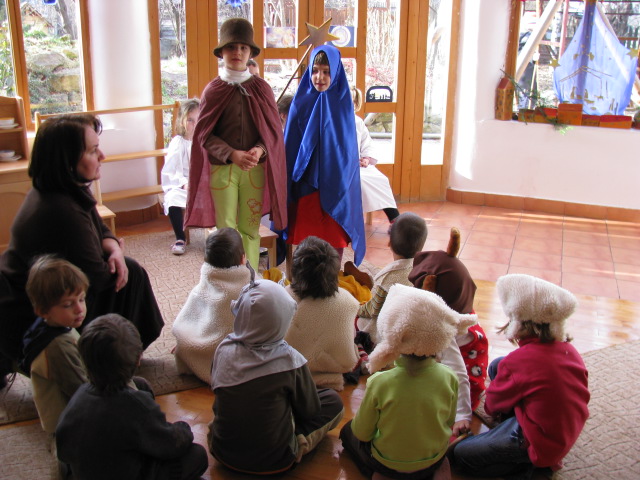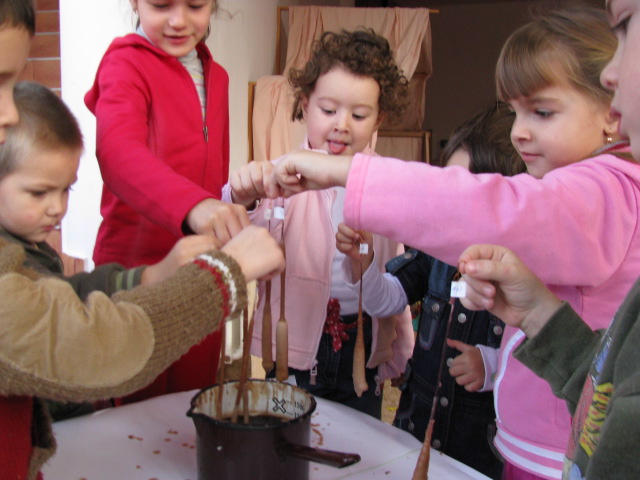In Romania there are currently 57 Waldorf kindergarten groups, where 1433 children are cared for by 105 Waldorf early childhood educators (as of October 2015).
Waldorf kindergartens and schools in Romania are part of the state educational system. Waldorf Education is recognized by the Ministry of Education as a form of alternative education ,through an agreement signed in 1996 which expected that Waldorf educators and teachers would be able to teach the state curriculum. Waldorf kindergarten groups are often part of larger institutions in which not all groups practice Waldorf education. There are also two independent Waldorf kindergartens.
Parents whose children attend Waldorf kindergartens and schools have formed non-profit organizations in many places in order to support the activity of the Waldorf classes and to organize cultural programs in support of Waldorf education.
Working together. Waldorf early childhood educators have formed an “Association of Waldorf Early Childhood Educators in Romania” (AEWR) with its legal seat in Cluj. AEWR organizes conferences and professional development courses as well as mentoring for those new to the work. AEWR is a member of the “Waldorf Federation of Romania” which coordinates all the Waldorf programs (schools, curative education institutions and kindergartens). AEWR is a member of IASWECE.
Training. Since the end of the 1990’s, there has been a Waldorf training course in Romania. For the three-year part-time training, students travel to Cluj five weeks each year for intensive courses (one week in spring, three in summer and one in fall). Every year 20 – 30 students complete their training as Waldorf early childhood educators. Today the courses are mostly taught by Romanian teaching faculty; each year one or two tutors from other countries offer a course. IASWECE has supported the training and the annual kindergarten conference in Romania for many years. Since 2015 there has also been a training course in Bucharest, also supported by IASWECE.
A special characteristic of Romania. There is great cultural diversity in this land of nearly twenty million inhabitants (Bucharest, the capital city has two million inhabitants). The national language is Romanian, and in some regions Hungarian is also spoken. However, many people also speak French, German, or English. (Bucharest is called “Little Paris” and Timisoara is called “Little Vienna”.) As in many other countries, the professions of teacher and early childhood educator are not sufficiently recognized socially or financially. .
Angela Dana is a Waldorf educator in Timisoara, a member of the board of AEWR and a member of the IASWECE Council.



